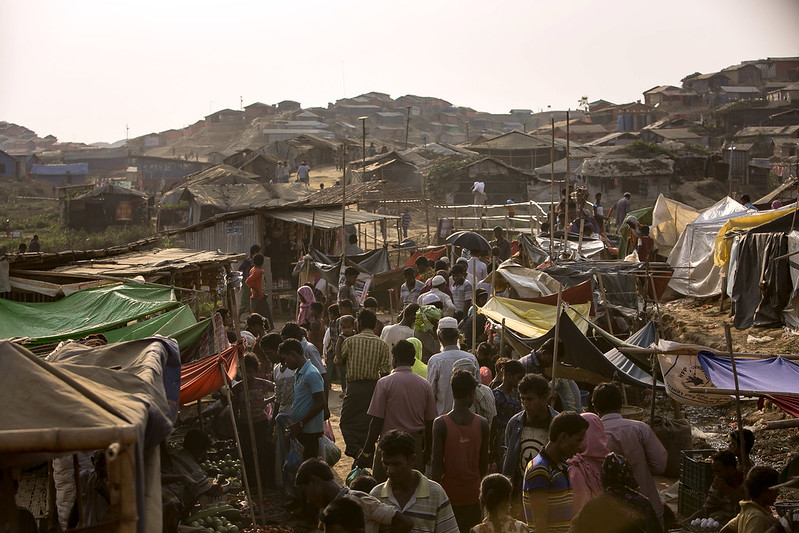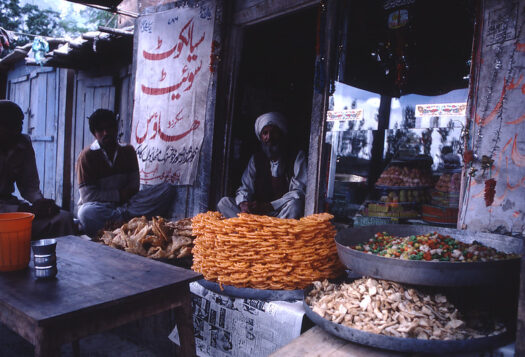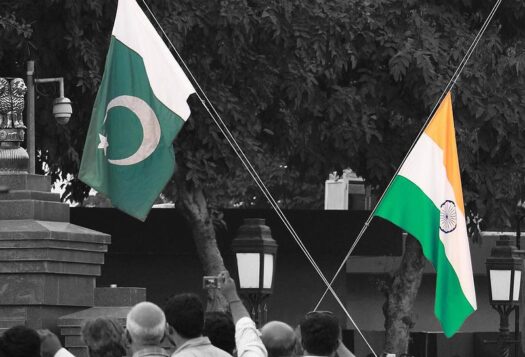
A shadow of doubt and anxiety hangs over Bangladesh about India’s plans to institute a pan-India National Register of Citizens (NRC). The complex demographics of Bangladesh and its long and porous border with India are at the core of the issue. People frequently travel across to exchange commodities, work informal jobs, and visit family members. The possibility of the NRC’s implementation, however, threatens to upset this balance. While the two countries’ relationship has been characterized by times of harmony and conflict, the relationship seems to be in its golden age now, as shown at last year’s G20 summit when bilateral trade reached USD $15.9 billion. The potential of a future influx of immigrants from India to Bangladesh, provoked by a nationwide NRC, could undo this progress.
While the two countries’ relationship has been characterized by times of harmony and conflict, the relationship seems to be in its golden age now…a potential future influx of immigrants from India to Bangladesh, provoked by a nationwide NRC, could undo this progress.
What Is the NRC?
In 2013, the state of Assam began updating its register of citizens under Supreme Court orders to identify undocumented immigrants living in the state. In 2019, Union Home Minister Amit Shah proposed implementing the register nationwide and declared that the BJP would drive out all “illegal immigrants” before the 2024 Lok Sabha elections. In the same year, the BJP announced it would implement the Citizenship Amendment Act (CAA), which offers an accelerated route to naturalization for all religious minorities, excluding Muslims from Afghanistan, Bangladesh, and Pakistan who fled to Hindu-majority India before December 31, 2014. This act is the first time religion has been used as a criterion for Indian citizenship.
Under a nationwide NRC, Indian Muslims who lack the formal documentation needed to prove citizenship will ultimately be forced to apply for citizenship by claiming to be Afghan, Pakistani, or Bangladeshi, running the risk of being labeled as illegal immigrants under the CAA. It is important to note that in a country as large as India, a majority of the poor, regardless of religion, lack formal documentation. However, the combination of the NRC along with the CAA would specifically disenfranchise Indian Muslims. India has no fixed policy for stateless persons, and there are no clear guidelines on what the Indian government will do with these so-called “infiltrators,” provoking fears of imprisonment and deportation.
The initial announcement of the CAA and NRC in India’s northeastern state of Assam sparked protests across India in 2019. At the time, Prime Minister Narendra Modi said that the BJP had no plans to implement a nationwide NRC. However, now that the BJP has announced its CAA regulations just before the election, it seems likely that a future Modi administration will implement a nationwide NRC. Bangladesh is watching these developments closely because the policy will make waves in its own politics and demographics.

The Assam state government’s attempt at compiling a state-wide NRC has been a logistical and procedural disaster. Due to the influx of Bangladeshi refugees during the 1971 War of Independence, Assamese residents had to prove they lived in the state before the war. The approximately four million people who failed to show these documents were excluded from the NRC list, including many genuine citizens.
The Supreme Court received petitions from multiple Assamese organizations asking to revise the 2019 draft list, putting the process on hold. The state’s BJP-led administration has declined to accept the current draft, claiming that some names of individuals were erroneously included or excluded. As Indian senior advocate Sanjay Hegde puts it, “How do you go about this entire exercise with a population of 1.25 billion people of which 700 to 800 million people may not have birth certificates?” Those who appeal unsuccessfully risk imprisonment or deportation.
There have already been several prison facilities established in states such as Assam to hold people without papers. Last July, Deputy Chief Minister Devendra Fadnavis announced the near completion of a detention center in Balegaon to hold illegal immigrants. The Assam government shifted all 87 “declared foreigners” from six detention centers to a “dedicated transit camp.”
These policies beg the question: where are they meant to go?
Implications for Bangladesh
Public and media discourse in India generally equates “illegal immigrants” to “Bangladeshis.” The ruling party’s Home Minister has publicly called Bangladeshi immigrants “termites.” Furthermore, the porous border between the two countries saw a 50 percent increase in people held for illegally crossing from India to Bangladesh after the announcement of the second draft NRC list in Assam in 2018. Therefore, in the case of a nationwide NRC, it is likely that the eventual destination for these undocumented immigrants in case of eviction from India is Bangladesh, given the geographic proximity and close cultural and kinship ties.
This could result in a humanitarian and diplomatic crisis for Bangladesh. Despite facing poverty and infrastructural challenges, Bangladesh is currently hosting over 1.2 million Rohingya refugees in camps who are unlikely to be repatriated to Myanmar. There have occasionally been conflicts between host communities and the refugees as well due to their perception of Rohingyas as outsiders. Bangladesh will face a similar situation if it is forced to house the four million-strong population excluded from the NRC list in Assam alone.
Segments of Bangladeshi society harbor anti-India sentiments due to decades of tension over Teesta River water sharing agreements and killings of Bangladeshis by the Indian Border Security Force. The CAA and NRC have contributed to Bangladeshis’ public disdain and scorn towards India.
The potential displacement of millions of Muslims from India could create fertile ground for anti-India radicalization within Bangladesh, as a pan-India NRC will be seen as an attack on Islam. This may escalate into attacks on the Hindu minority community in Bangladesh, as observed in 2021.
The BJP government must recognize that the NRC is not an internal issue anymore if it risks causing a transborder humanitarian crisis. The fallout from the NRC could reverberate across trade, security, and people-to-people exchanges.
Conclusion
New Delhi has previously assured Dhaka that the NRC is an internal matter and that Bangladesh need not be concerned. Yet, the BJP government must recognize that the NRC is not an internal issue anymore if it risks causing a transborder humanitarian crisis. The fallout from the NRC could reverberate across trade, security, and people-to-people exchanges. Furthermore, it risks further pushing Bangladesh towards China, which is currently its largest trade partner. India would risk losing Bangladesh as an emerging “hub for connectivity” and an important gateway for its Act East Policy.
The NRC’s implementation not only has the potential to strain diplomatic relations between India and Bangladesh, but also adds to the problematic trend of heightened religious nationalism in South Asia. These policies exacerbate tensions and complicate efforts towards regional cooperation and integration. India must think through whether, at the cost of families being split apart, people being uprooted from their homes, and vulnerable populations becoming stateless, compiling a list of India’s “citizens” is really an achievement.
Also Read: The Role of West Bengal and Assam in Indian Foreign Policy
***
Image 1: Refugee camps in Bangladesh via UN Women on Flickr
Image 2: CAA protests in Assam via Wikimedia Commons


